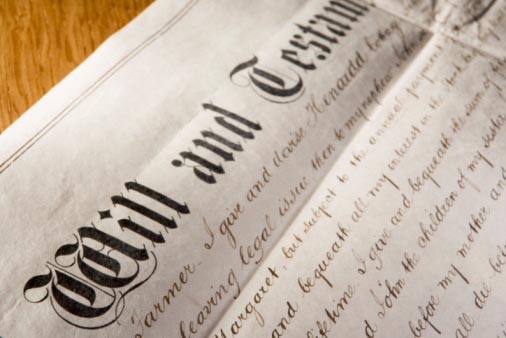A will is a legal document outlining how your assets will be shared amongst family and friends should you pass on. This is an important piece of paper that requires a lot of forethought and careful planning. Despite the fact that a lot of law experts recommend that you not write your own will without the help of someone who has a firm grasp of the law, you can do so if you have a general idea of what you’d like to say when it comes to your estate. In fact, some websites have prepaid wills that you can simply download and fill in with relevant information. In this post, we’ll take a look at some of the basics of writing a will.
Top 4 Reasons to Write a Will:
- If you are of frail health and don’t see yourself surviving for much longer
- If you have a sizeable estate that you would like shared amongst family and friends
- If you have a number of benefactors that you feel may contest your assets in your demise
- If you have small children who you feel may have a hard time finding a voice in your death as it relates your estate.
Things that Must be Included:
- Name the will’s executor so it’s not left up to guesswork
- Be clear on how you’d like your debts and taxes paid
- Make sure that pets are provided by giving them out to one of the people named in your will.
- Provide guardian and trustee names if there are young children under 18.
A will can only be considered to be legal if:
- The will is signed by yourself
- Two witnesses sign the will
- Have a notary sign an affidavit (this may only apply in some states and is not mandatory)
It is the responsibility of the executor to appoint an attorney to probate the will in order for it to be made legal. In addition, it’s also OK to call two witnesses and tell them that ‘this is my will’ without having to disclose what’s in the document.
People involved in the will creation process:
- Testator: This is you, or the person writing out the will
- Trustee: An individual appointed by the testator or executor to manage will items if there are children under 18.
- Executor: The person charged with the responsibility of carrying out your wishes as outlined in your will
- Beneficiaries: Individuals named in the will who are set to receive your assets
- Witnesses: Usually two individuals who are appointed to verify the signing of the will. They also sign the will themselves after witnessing the testator signing it.
Should you die without creating your will, your assets and estate will go into intestate which typically means that the fate of your assets will be decided by state laws. To be on the safe side and make sure that your loved ones are catered for, prepare your will in advance and revise it every so often if you’d like.
